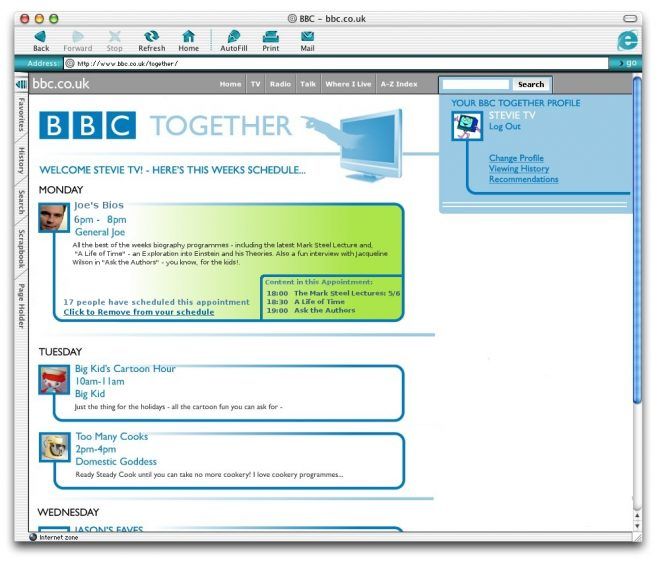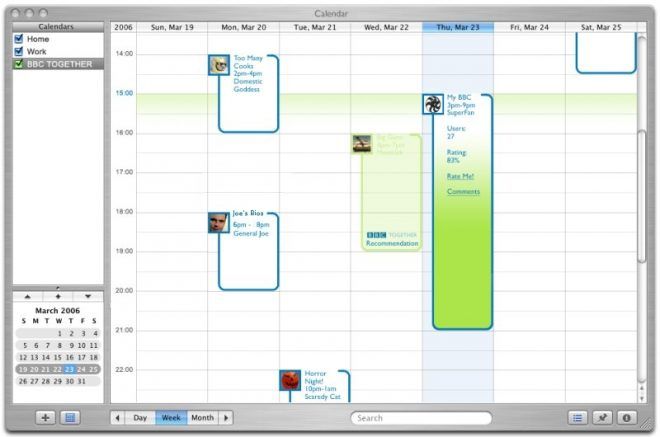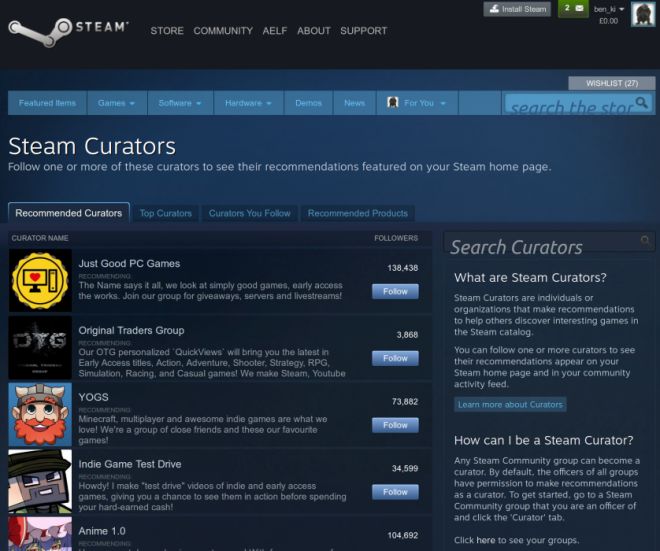BBC Together
Early exploration of Social TV in the BBC Innovation Labs (2006)

As part of the BBC Innovation Labs scheme, I worked with Jacob Carter and Andrew Hooper on a concept for a social TV experience for the BBC called BBC Together. In 2005/2006, the iPlayer was still in development (then called MyBBCPlayer, and powered by BitTorrent!) and the BBC had just begun to embrace digital formats. This included the massive task of digitising both the enormous BBC archive, and also all new programmes. Looking back it was incredible foresight - the BBC was far ahead of the curve of on-demand TV technology, which we now take for granted.
With the emergence of Web 2.0 and the beginnings of the social web, the BBC were interested in how in the social web would fit around on-demand content. We were invited to work with the BBC on a concept around the future of TV as a social activity.

With the massive digitisation of content, we foresaw choice becoming a major challenge for the BBC - When there are millions of hours of content, being added to daily, viewers have wonderful variety, but it can be hard work navigating effectively. Anyone who uses Netflix is familiar with this frustration.
BBC Together proposed using "curators" to develop customised channels of TV content, drawn both from the new BBC programmes and the archive. Anyone could set up a feed, add content and publish it. Rather than watching a "channel" (an old fashioned concept), viewers would instead subscribe to a variety of curators they trusted (and could rate, recommend, etc). We also advocated the use of "expert" curators - think of Mark Kermode organising a film channel, or Kim Newman hosting a horror channel.
The additional twist was that each channel could (optionally) have a "live" time slot, where each week (or fortnight, month, year) the channel would be renewed. This aspect is intended to support co-viewing. In the channel-less future, that live social aspect is somewhat lost. A good modern example is when Netflix releases entire seasons in one drop, it also kills the social discussion of the TV programme. We don't know where everyone is up to so no one talks about it in case they spoil it for one another. BBC Together was designed to ensure that viewing could be paced, and also afforded the opportunity for communal (but remote) viewing. People could then discuss programmes live using chat rooms. Twitter wasn't invented yet (it was released 3 days after the project ended!), but things like hashtag discussions during live TV are a perfect example of how this is valuable.
Of course, being the Web 2.0 days it was important to have everything in open formats - BBC Together feeds were available in ICS or RSS flavours.

Unfortunately, BBC Together never made it past the commissioners, however it is one of the projects that continually comes up in discussion as content providers try to build social services. It identified a lot of issues around increasing availability of content, and proposed some elegant solutions.
What is particularly interesting is this kind of curation approach to large archives of content has been picked up by other media. In 2014, the computer game distribution service Steam started offering curated channels of content along very similar lines, even down to "celebrity" curators, who offer their opinions on which games are worthwhile out of the thousands available.

Update from 2020
BBC Together is now real. Note the new BBC Together isn't actually anything to do with our project from 2006, just shares a sweet name and core principle. It's now a tool for synchronising iPlayer between others so you can experience streaming content simultaneously. That's neat and cool, and also very 2020 :) Now where's the RSS?!